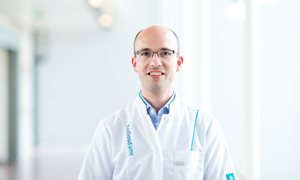 Integrated care for frail elderly does not prevent deterioration in their independent functioning (activities of daily living). Furthermore, according to a study by Franca Ruikes of Radboudumc, it does not alleviate the burden on informal caregivers, nor does it reduce healthcare costs. Nevertheless, Ruikes believes that integrated care does have value: “We need to provide more support and seek appropriate care by improving our collaboration with informal caregivers and with welfare and housing agencies.” Ruikes will defend her doctoral dissertation in Nijmegen on 7 November.
Integrated care for frail elderly does not prevent deterioration in their independent functioning (activities of daily living). Furthermore, according to a study by Franca Ruikes of Radboudumc, it does not alleviate the burden on informal caregivers, nor does it reduce healthcare costs. Nevertheless, Ruikes believes that integrated care does have value: “We need to provide more support and seek appropriate care by improving our collaboration with informal caregivers and with welfare and housing agencies.” Ruikes will defend her doctoral dissertation in Nijmegen on 7 November.
The CareWell program
Ruikes and her research team developed an integrated primary care program for the elderly in which teams of general practitioners, specialists in geriatric medicine, community nurses and welfare advisors work together to provide proactive care to the frail elderly living at home. This CareWell program focused on the care needs of the elderly and their informal caregivers. The aim of the program was to prevent or postpone dependency regarding their daily life, assuming that this will help these elderly to continue to live at home for longer and with a good quality of life.
Not better than regular care
To monitor the effect of the CareWell program, Ruikes studied 287 elderly in six GP practices who were provided with care according to the CareWell program, and 249 elderly from six other GP practices who were provided with regular care. Contrary to expectations, the study showed that there was no difference in functional deterioration between the two groups. Furthermore, no difference was found in the number of hospital and nursing home admissions of these elderly, and the burden on informal caregivers was unchanged. Additionally, the care given according to the CareWell program was possibly even more costly than regular care. Integrated care programs of other UMCs, carried out within the “Nationaal Programma Ouderenzorg”, yielded similar results.
Useful outcomes
According to Ruikes, these results do not mean that integrated care programs have no future: “These programs were highly appreciated by the elderly and professionals. However, we need to be much more aware of the great diversity among the elderly. I think we should focus more on the prevention of functional deterioration in the elderly. And for those elderly who are already severely limited in their daily functioning, we need to focus on the continuation of social participation and other aspects that are important for the elderly themselves and which determine their quality of life, even with their limitations. To achieve this we need to enhance our collaboration with welfare and housing agencies.”
Franca Ruikes is member of theme Healthcare improvement science. Franca will defend her doctoral dissertation 'Integrated primary care for frail elderly; implementation, effects and costs of the CareWell primary care program' in Nijmegen on 7 November 2018.
http://hdl.handle.net/2066/195752






